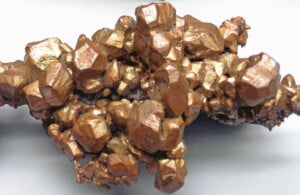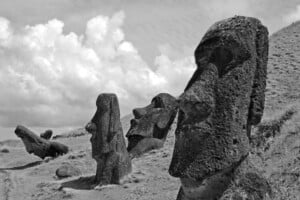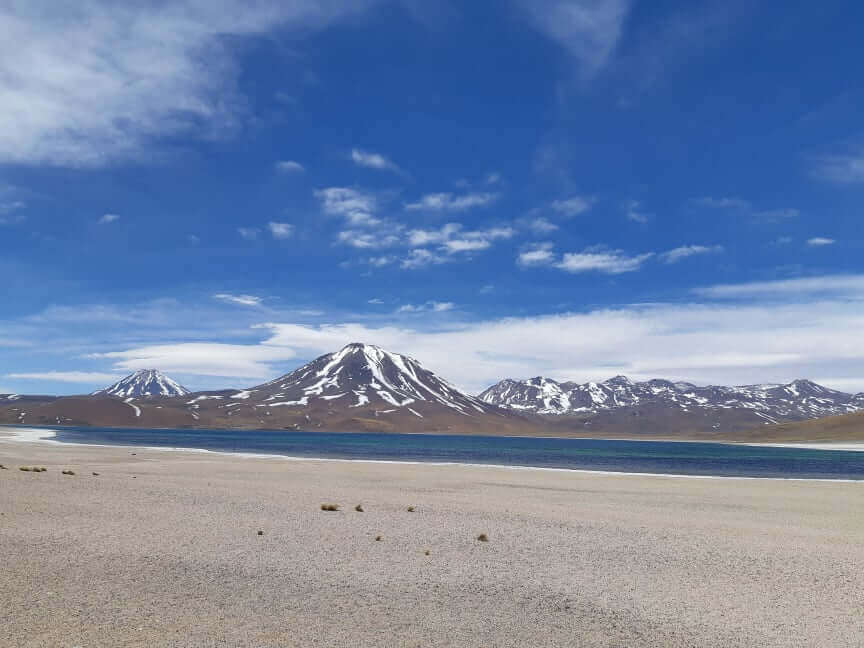Chile has one of the strongest and most prosperous economies in Latin America. It is the richest country in South America by GDP per capita. According to World Atlas, it is also the 30th most competitive country in the world. With its stable and growing economy, it is therefore understandable that Chile has a lucrative and expanding mining industry, that is becoming an ever-increasingly popular sector with foreign investors. There has, however, been much controversy in recent years with the development of the mining industry and the destruction it has on the indigenous communities of Chile. Out of Chile’s 18.25 million population, 10% are indigenous. The indigenous communities provide much of the history and culture of this Latin American country and so naturally should be respected and protected. It is therefore very important to understand and comply with all legislation and requirements that Chile has in regards to mining and the indigenous population.

Possessing vast natural resources of copper, iron, molybdenum, silver, gold, and lithium, Chile is a world giant in the mining industry. The mining industry accounts for approximately 13% of the national GDP and more than half of Chile’s entire exports. The country is also especially rich in copper reserves. Chile possesses almost 30% of the world´s copper reserves and it is also home to the largest copper mine (by output).
Thanks to Chile´s abundance of metals, it is unsurprising that many foreign investors coming to the country are interested specifically in the mining sector. Even though there are no legal restrictions imposed by the local authorities on foreign investment, there are certain conditions that all investors must comply with.
In this article, the most essential laws and regulations are outlined – requirements that every potential investor in the mining sector must take into consideration.
Mining Concessions in Chile – Legal and Regulatory Structure
The Chilean legal system is based on a civil law. The mining law in Chile is regulated by three legal bodies: the Chilean Constitution, the Mining Concessions Act and the Mining Code. The Ministry of Mining is the main governmental institution which administrates all mining-related activities. In addition, under its supervision is the National Geology and Mining Service which is responsible for the technical and safety standards of the mining projects.
Before you decide to invest in the mining industry in Chile, it is important to know that the State is the exclusive owner of all mines. This also includes salt deposits, coal and hydrocarbon deposits or fossil substances. However, both local and foreign entrepreneurs can apply for a mining concession through a judiciary process. The Chilean law differentiates two types of mining concession:
- Exploration concession: This concession is granted for the period of maximum 2 years. During this period, you can conduct exploration activities including more invasive measures such as excavations or ground movements. The right is granted regarding the underground mineral substances and not on the surface land where the minerals are located.
- Exploitation concession: This concession is provided for an indefinite period as long as tax burdens are complied with. If you want to start mining, you must apply for exploitation concession. Individuals who already have an exploration concession (although this is not a prerequisite) may be prioritized in obtaining an exploitation concession.
Environmental Law
In general, there are specified restrictions in certain regions of Chile that prohibit the performance of any economic exploitation or human activity. These environmentally restricted areas lie mostly in the South of the country, so this does not interfere with the active mines in the North. Nevertheless, the Chilean Environmental Act distinguishes between prospection and exploration or exploitation concession. Individuals interested in exploration concession do not need an environmental assessment. On the other hand, the companies interested in mines prospection or exploitation must apply for an environmental assessment beforehand.
Health and Safety Standards for Chilean Mining Workers
A mining company is responsible for guaranteeing and complying with all safety standards and regulations. These include training the employees to operate the machinery, providing all equipment necessary for protection, providing a first aid kit and guaranteeing transport for insured workers, in case of an accident.
Taxes and Royalties
Mining activity in Chile is subject to the general tax regime. There are three different tax regimes applicable to mining activities, depending on the size of the mining company. The mining companies are subject to a First Category Tax and to a Personal Tax. In the case of foreign entities, the companies must also pay specific mining taxes according to the annual amount of sales. Furthermore, individuals or entities must pay a mining royalty if they are extracting minerals that could be subject to mining concession and could sell them at any stage of production.
Rights of Indigenous People

In order to uphold and protect the Indigenous peoples’ rights, Chile has adopted the Indigenous Law No.19,253 and the Convention of the International Labour Organization. Thus, the local authorities are trying to find the right balance between economic growth and sustainable development in the indigenous communities. The adoption of these laws gave a special status for indigenous lands and natural resources while also setting certain limits on the acquisition and exploitation of these resources. As such, nobody can alienate the indigenous land to obtain the mining concession for exploration or exploitation rights. To strengthen the rights of indigenous people, in 1993 Chile established an Indigenous Development National Corporation (Corporación Nacional de Desarollo Indígena). Therefore, any investors interested in the mining industry will need to apply for the approval from this national corporation to obtain a mining concession.the
Need Tailored Mining Support in Chile?
What attracts more and more foreign investors to Chile is the vast range of natural resources and richness in metals. While the mining industry continues to remain one of the most fundamental industries in Chile, the concept of sustainable development and corporate social responsibility are starting to transform this important sector. Before deciding to invest in the Chilean mining industry, it is essential that foreign investors understand the local environmental and indigenous regulations, so that they comply with and incorporate them in their corporate policies.
Co-operating with a local partner will ensure that you comply with all local regulations and avoid any problems or obstacles along the way, hence why it is highly recommendable to do so. If you would like to learn more about the mining law in Chile, Biz Latin Hub has a group of legal experts that can offer you support and guidance in your mining ventures. Do not hesitate to get in touch with Allan, our Biz Latin Hub Chile’s Country Manager and mining specialist here for help on getting your business set up in Chile.
Check out the short video below to learn about exciting opportunities for mining companies in Latin America.






